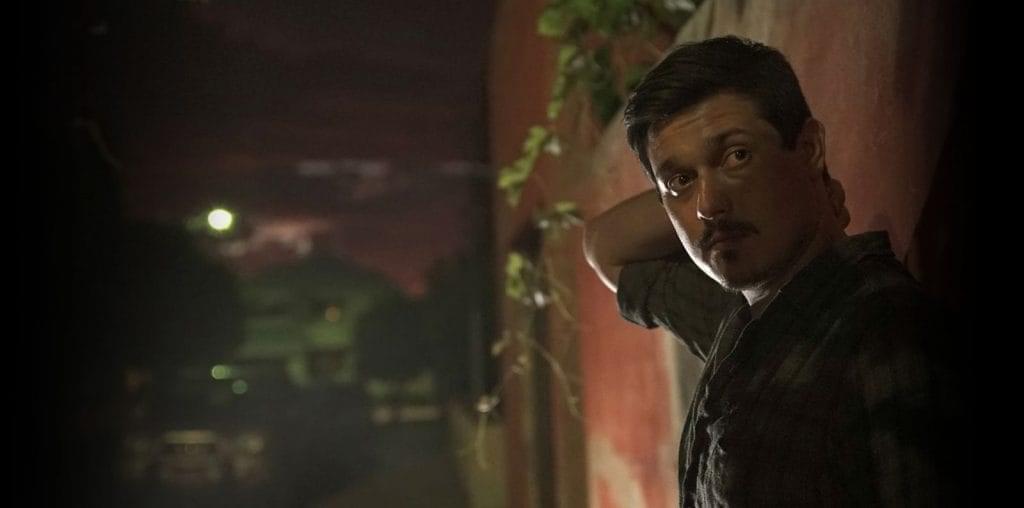
Straight out of world news headlines comes “The Martyr”, a riveting short film about terrorism in the Middle East. Much like the equally riveting Indian film “The Terrorist” (2000), writer/director John Dolan’s work is both a searing indictment of political/religious/social violence and an intelligent attempt to humanize those who carry it out. In a post-9/11 world, it’s bold stuff. It’s easy enough for Americans to vilify those faceless legions of young men and women who annihilate themselves and their enemies on a daily basis in that charming little neck o’ the woods called the Middle East. Aahhh, but it’s must harder for us to try to understand who these people are and why they consider themselves “martyrs” and not out-and-out murderers. “The Martyr” is only 10 minutes long. It doesn’t plunge us into the deepest darkest depths of the terrorist’s psyche the way the Indian film so brilliantly and fearlessly did. Nor does it give a sense of the cumulative effects these heinous acts have on the world at large; you know, the Big Picture. To put it simply, the film doesn’t attempt to answer any of the Big Questions, it just doesn’t have the time. But in its own audaciously direct and simple way, “The Martyr” leaves a tangible, haunting impression on the viewer. This is a brief, but oh so vivid glimpse of the hatred and fear and conflict in the heart of Man.
The film efficiently reduces the “faceless legions” to one particular young Palestinian named Ahmed (Seth Michaels). When we first meet Ahmed, he is studiously viewing terrorist propaganda videos in a secret compound. Playing out before his eyes are the final proclamations of other young men and women who shortly after achieved sacred martyrdom through their own acts of hatred against the Israeli Jews. We intuit that Ahmed is preparing to do the same, to bring “honor” and “glory” to his family through self-sacrifice. We also intuit, via a series of flashbacks, that his father may have been killed in a senseless altercation with Israeli police officers some years back. (Perhaps this is what fuels his fire.) Whether out of revenge or institutional hatred or familial honor, Ahmed lines himself with explosives, dons the traditional garb of the Orthodox Jews (replete with beard), and enters an Israeli cafe brimming with Israeli patrons. For a moment, we almost believe that the visibly distressed Ahmed might reconsider his “glorious” mission. In fact, when a bright-eyed young boy approaches him with a drawing of love and friendship and asks, “Do you pray too?”, we are downright positive things will end with hugs all around. But then we are soberly reminded of the film’s title.
Dolan apparently wrote “The Martyr” before the 9/11 terrorist attacks, under the advisory of Jewish, Arab, humanitarian, and anti-terrorist groups. This cross-cultural influence is certainly evident in the film’s simultaneously critical and compassionate tone toward its subject. On the one hand, we kind of empathize with Ahmed. After all, his father was senselessly killed by men of a background his people tend to despise as it is. And it seems young Ahmed may just buy into the loathsome rhetoric the elder militants feed him: that “his name will be shouted from one end of Palestine to the other” as he enjoys the fantastic bounties of the afterlife. On the other hand, we are sickened by the misery and suffering his “martyrdom” brings to those innocents in the wrong place at the wrong time. Dolan’s screenplay and direction of this material is simply devastating. If I’m correct in believing he made the film in the U.S., then his evocation of the Middle East is superb and utterly convincing. His film is also strengthened by uniformly solid performances, especially by Seth Michaels in the lead role, and excellent craftsmanship. Like the absurdity and inanity of suicide bombings, “The Martyr” is brutal, jolting, and over before you know it.
